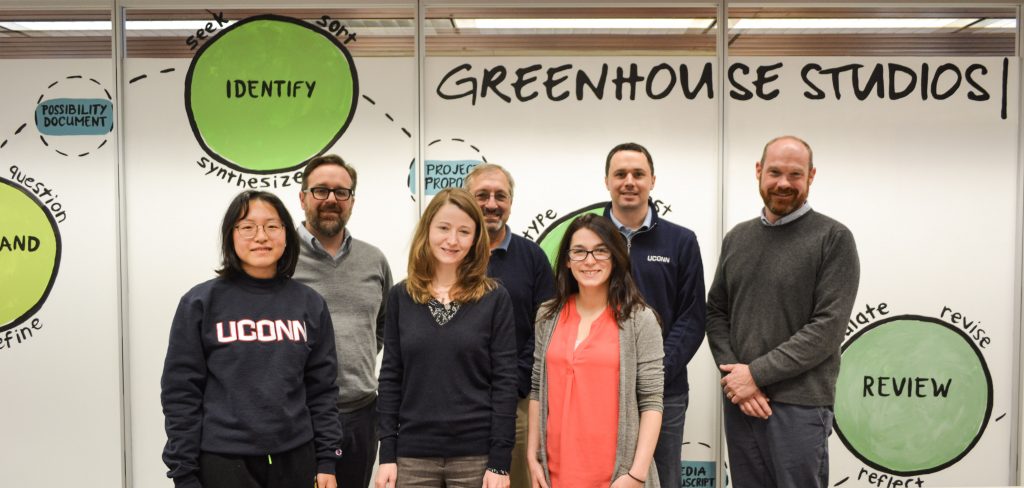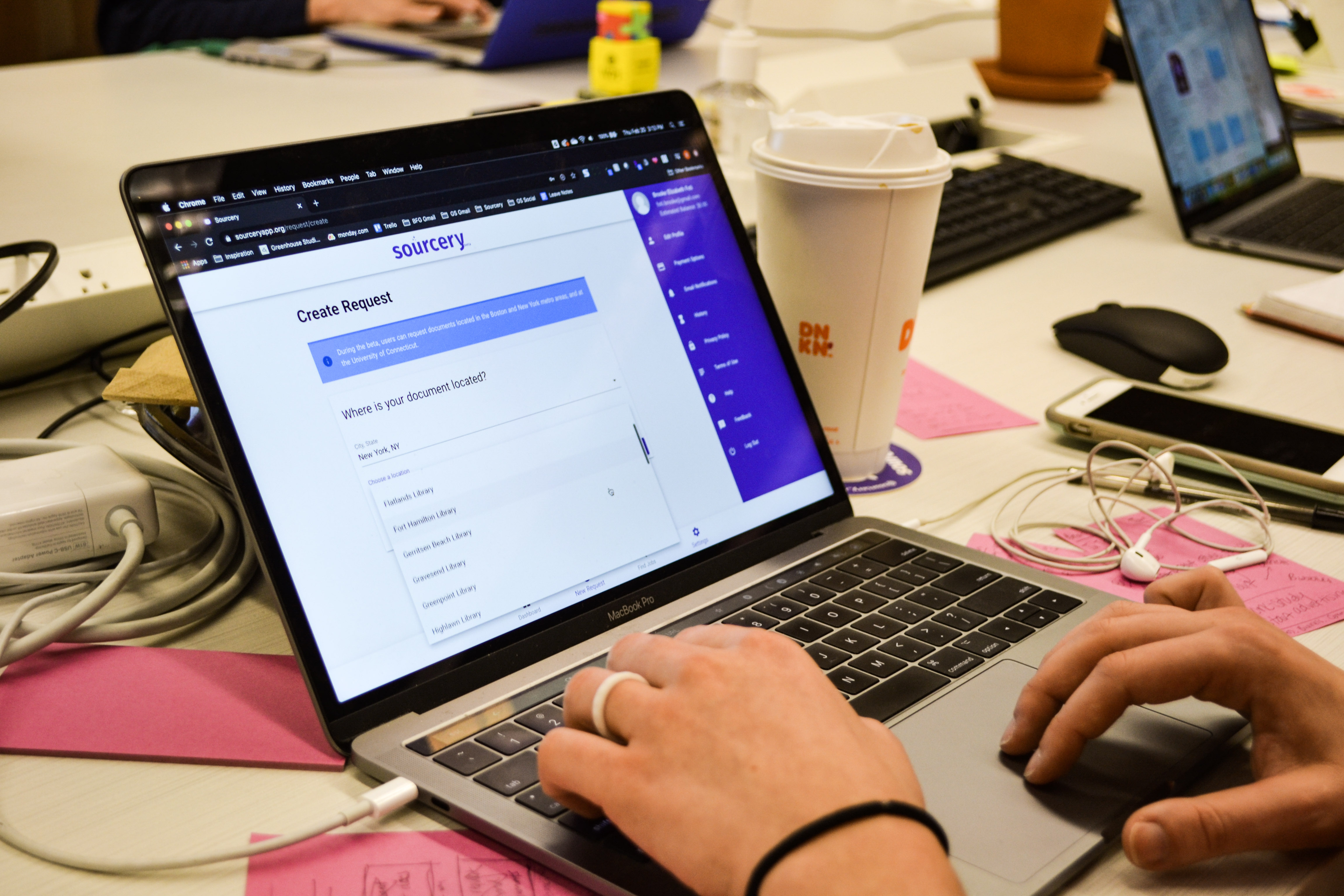Need a ride? Uber or Lyft can help get you where you need to go. Hungry? Grubhub, Doordash, or Postmates can deliver whatever you’re craving. Want to view a rare document in a library across the world? A new app developed by a team of UConn scholars will soon have you covered.
A team of UConn faculty and staff have developed an open source web application called Sourcery to make it easier to access some of the world’s most sought-after archives and rare collections.
“Because of the connected nature of modern society, we assume everything is online, but that couldn’t be further from the truth,” says Tom Scheinfeldt, associate professor of history and co-inventor of Sourcery. “In fact, only a tiny fraction of the world’s documents have been digitized.”
If researchers want to see those documents, they have limited options. They could request an electronic copy, if they are lucky enough to have a colleague close by who would do it for them. In many cases though, physically traveling to see the documents is often necessary. This option is time consuming, expensive, bad for the environment, and even more complicated in the age of COVID-19 travel restrictions.
To solve these problems, Sourcery gives researchers convenient, remote access to special collections that can’t otherwise be found online. Users just plug in citation information for the desired source material into the app, which can connect researchers to any institution in Sourcery’s service area. A researcher or graduate student in the local area is paid a fee to make a digital version following relevant copyrights, regulations, or policies, and within a matter of hours or days, the documents appear in the user’s inbox. No planes, no trains, no favors.
Sourcery first launched in New York City, Boston, and Storrs. Now they are expanding coverage to include New Haven, Connecticut and Washington, D.C., where many of the world’s most in-demand special collections are located.

“As we expand our user base and our coverage area, we hope Sourcery will really disrupt the way researchers and the general public gather information,” says Brian Daley, co-inventor and assistant professor-in-residence in the Department of Digital Media and Design. “Eliminating the need to travel will drastically reduce costs and improve the carbon footprint of scholarship. It’s about democratizing access to these sources.”
Scheinfeldt had the idea for Sourcery years ago after attending graduate school in the United Kingdom. Back in the states, he often wanted one more look at documents in Oxford or London, but didn’t have an easy way to access them. The advent of businesses based on a “sharing economy” model like Uber and Airbnb and support from various groups around the University helped him turn the idea into a viable project.
“UConn is really supportive of entrepreneurship. I was sitting on this idea, but the encouragement I received from people and programs at UConn gave me the push I needed to put real resources behind the idea and go for it,” says Scheinfeldt.
A historian of technology, Scheinfeldt worked with colleagues at Greenhouse Studios, an incubator for digital scholarship at UConn that Scheinfeldt directs. Greenhouse Studios works with interdisciplinary teams on projects that share humanities scholarship in new formats to engage new audiences. The program is a shared initiative of the UConn Library, School of Fine Arts, and the College of Liberal Arts and Sciences.
Scheinfeldt and the Sourcery team have taken advantage of several UConn programs that help aspiring entrepreneurs advance their technologies towards market. Last fall, they completed Accelerate UConn, a rigorous seven-week training program jointly offered by the Office of the Vice President for Research and the Connecticut Center for Entrepreneurship and Innovation in UConn’s School of Business. The program teaches participants about customer discovery and the importance of getting out of the lab to validate their business ideas. Accelerate UConn is funded through a grant from the National Science Foundation’s I-Corps program.
As Sourcery continues to expand its offerings, Scheinfeldt hopes it will inspire other faculty from the arts, humanities, and social science to consider commercializing their ideas.
“If you have an idea, don’t sit on it. UConn is full of people and resources who will help you turn your ambition into a reality.”
Greenhouse Studios launched in February 2017 with a $789,000 grant from the Andrew W. Mellon Foundation. This award was first of its kind at UConn and part of the Mellon Foundation’s Scholarly Communications program, a multi-pronged effort to accelerate the evolution of scholarly practice and academic publishing to meet the opportunities and challenges of the digital age. The Mellon Foundation recently awarded Greenhouse Studios and Northeastern University Libraries an additional one-year $120,000 planning grant to support the continued development of Sourcery.



